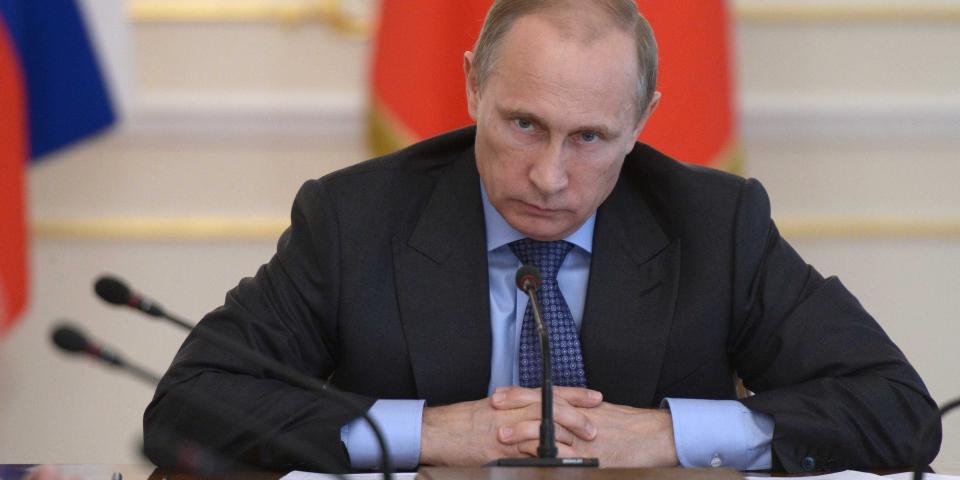Russia could disrupt oil markets if they penalize countries that abide by the $60 price cap, RBC's commodities chief says

Russia could disrupt oil markets if they penalize nations that abide by the price cap, according to RBC's Helima Croft.
The EU cap on Russian oil kicks into gear on Monday, with bloc setting the level at $60 a barrel.
But alternative supplies are scarce, meaning a retaliation from Russia could send oil prices higher.
Russia could further roil energy markets if the Kremlin chooses to penalize countries that abide by the $60 price cap on Russian crude, according to RBC's commodities chief Helima Croft.
"A key factor to watch right now is, will the Russians make good on their threats to withhold supplies to any customer who pays at the cap?" Croft said in an interview with CNBC on Monday, pointing out that Russia has already cut off its gas supplies from nations that won't pay in rubles. "They have a real track record of disruption. Will it carry over to oil?"
That comes as the European Union cap on Russian oil kicks into gear, with the bloc having setting a level of $60 per barrel on Friday. If Russia abides by the cap, that would allow the country to still use western services, like shipping insurance, potentially keeping Russian oil on the market and flowing to Asia.
But Russian officials have threatened to retaliate against the measure by slashing supplies from any country that imposes a price cap, placing pipeline oil flows to Europe at risk, as well as supplies to any country that agrees to the G7-led price cap mechanism, Croft said.
So far, the mechanism has faced a mixed response from some countries. Japan has said it would abide by the mechanism, though not on imports from Sakhalin-2, one of Russia's major oil and natural gas hubs. India, a major oil customer since the invasion of Ukraine, has said it would continue to purchase Russian oil. China, meanwhile, has begun lifting its zero-COVID policy, potentially leading it to ramp up purchases of Russian oil as demand rebounds amid the reopening of its economy.
Meanwhile, alternative supplies on the market are running scarce, meaning a retaliation from Russia could squeeze supply even tighter and send oil prices skyrocketing. US Strategic Petroleum Reserve oil sales are expected to end this month, and OPEC+ held firm on its production cuts at a meeting on Sunday, causing Brent oil prices to surge to $88 on Monday.
Industry experts have also criticized the price cap mechanism for its effectiveness, as western nations are still working out details on how to enforce it, and Russia could be left undeterred from shipping its oil anyway. The country still has access to a shadow fleet of oil tankers and could be willing to ship oil with lower-value insurance companies, or even without insurance at all, according to S&P Global analysts.
Read the original article on Business Insider

 Yahoo Finance
Yahoo Finance 